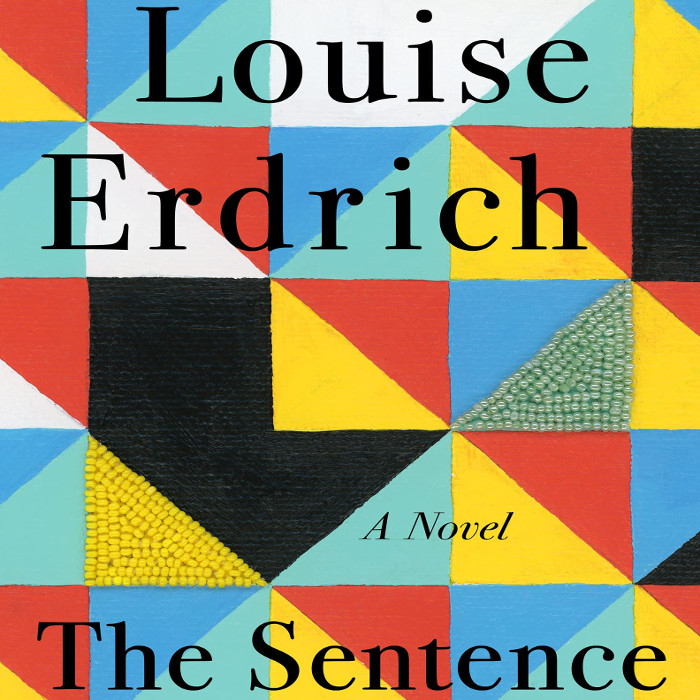In The Sentence, by Louise Erdrich, the main character, Tookie, is a 40ish year old Indigenous woman whose life and relationships play out against the early days of the COVID pandemic and the heartbreaking racist trauma of the George Floyd murder in Minneapolis, Minnesota. Oh, and also, there is a ghost!
After surviving ten years in prison for an almost laughably stupid crime involving body snatching and drug smuggling, Tookie now works in a bookstore specializing in Indigenous writers, the “Indigerati” she calls them. Urban, intellectual Native Americans. (I’ll point out that the author also owns a bookstore, by the same name, in Minnesota, but this is not autobiographical!)
When a cantankerous elderly customer named Flora dies suddenly, she returns to haunt Tookie and the bookstore. As she deals with the ghost’s rumbling and hi-jinks, Tookie emotionally deals with the ghosts from her past. She doesn’t wallow in self-pity; she confronts her history face on. She is held steady by her loving strong husband Pollux, a quiet spiritual man thoroughly immersed in his culture. She is challenged by Pollux’s adult daughter Hetta, who returns to their home with a newborn in tow. Tookie is inspired and engaged by her co-workers at the bookstore, who bring their own interpretation of their Native culture and identity.
And then, COVID arrives. Do you remember how it snuck up on us, then burst through the doors of our consciousness like King Kong? Erdrich takes the reader right back inside those days, searching for disinfectants, learning about airborne droplets, stocking up on toilet paper, canned beans, and rice. Quarantine, isolation, the world suddenly hushed. But as families drew together, parts of Minneapolis fell apart when George Floyd was murdered by a police officer. We see the city, enraged and on fire, through Tookie’s eyes. Like most of her Indigenous friends, she knows all too well the history of police brutality. Erdrich tackles these recent historic events in a straightforward comprehensible way. While all the time, Tookie is still fighting her ghost, working (pandemic style) in the bookstore, and reminding everyone around her of the power of books in her life. In doing so, she reminds us of the power books have in all our lives. Erdrich reinforces this with a very extensive list of Tookie’s favourite books at the end of the final chapter.
The Sentence totally wowed me. From the very first paragraph, when Tookie tells how she received a dictionary in prison from a former teacher and how it shaped her future, to the end, where she and her co-workers work together to help Flora the ghost finally pass over. I have spent a lot of time wondering if Flora was a real ghost or a metaphor for circumstances in Tookie’s life. Each reader will draw their own conclusion. But for me, Flora was real, but so were the answers Tookie was seeking.












